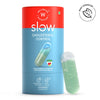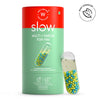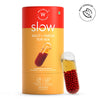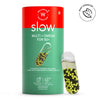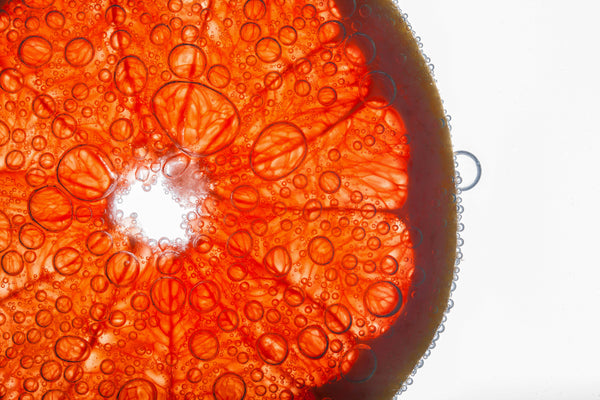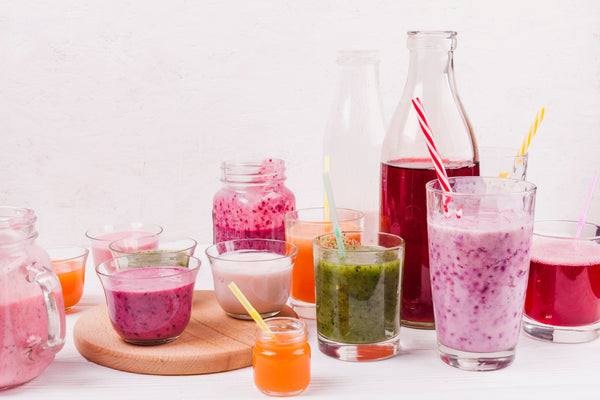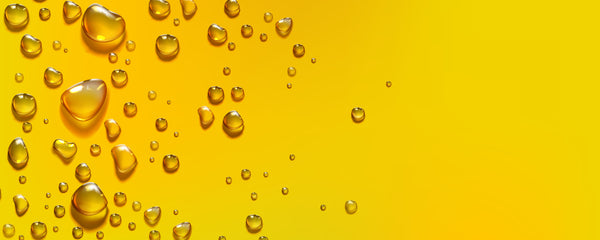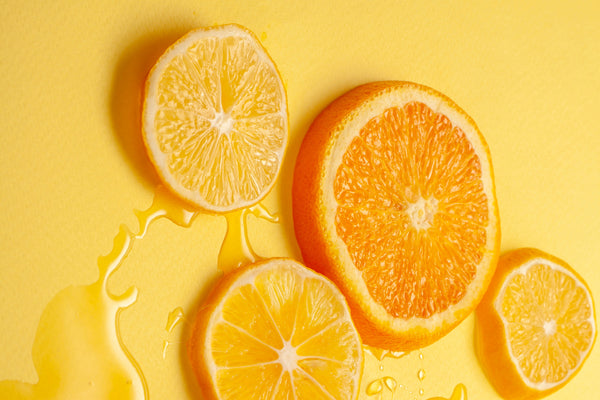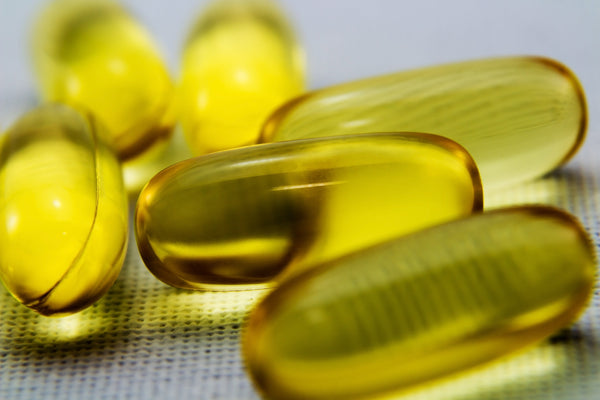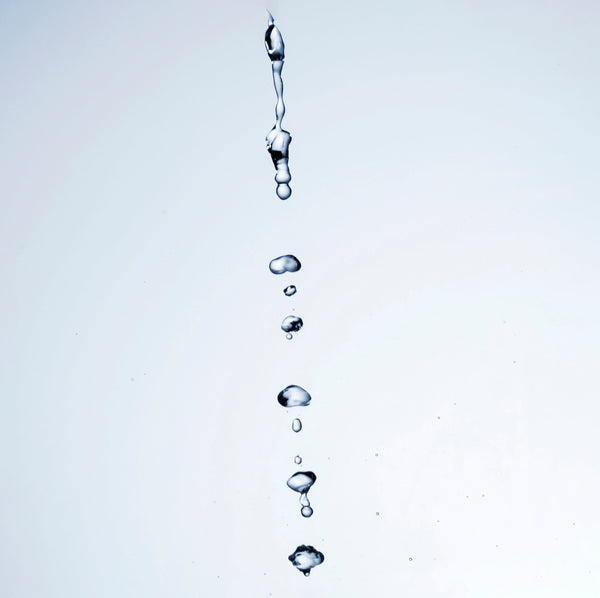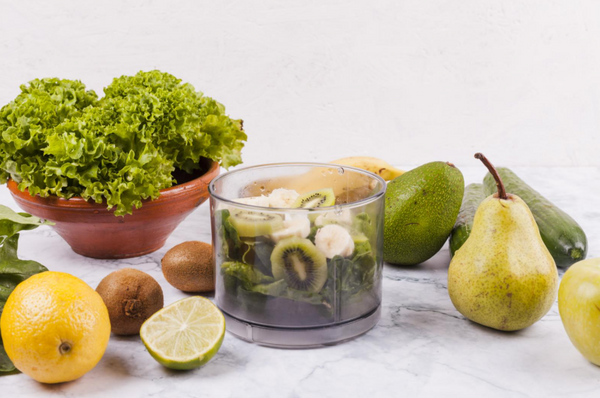While the word cholesterol might spark concern, it isn’t the enemy you think it is. In fact, your body needs it to build healthy cells and produce essential hormones. The real problem begins when there's too much of the "bad" kind and not enough of the "good."
HDL (high-density lipoprotein) is your body’s internal maintenance team—it helps clear excess cholesterol from your bloodstream and sends it to the liver for removal. LDL (low-density lipoprotein), on the other hand, tends to linger and build up in your arteries, forming plaques that increase your risk of heart disease and stroke over time.
The good part: what you eat can make a real difference. With the right food choices, you can naturally lower bad cholesterol, boost the good, and support your heart health.
The Role of Diet in Cholesterol Management
How Food Affects Cholesterol Levels
What you eat doesn’t just fuel your body, actively influencing your blood cholesterol levels.
Saturated fats, commonly found in red meats, full-fat dairy, and processed snacks—can raise your LDL (bad) cholesterol. Similarly, trans fats, often hidden in baked goods, margarine, and fried foods, not only increase LDL levels but also lower HDL (good) cholesterol. This double whammy can significantly accelerate plaque buildup in the arteries.
But it works both ways. Certain nutrients—like soluble fiber, omega-3 fatty acids, and plant sterols—can actually help reduce LDL cholesterol, support HDL levels, and protect your arteries from inflammation and oxidative damage.[NIH]
Benefits of a Low Cholesterol Diet
Adopting a low cholesterol diet isn't just about cutting out harmful fats—it's about embracing dietary patterns that support long-term heart health.
Diets rich in whole grains, fruits, vegetables, nuts, legumes, and healthy fats have been clinically shown to:
-
Lower LDL cholesterol
-
Raise HDL cholesterol
-
Reduce inflammation
-
Improve blood pressure
-
Support healthy weight and metabolism
In fact, following heart-smart eating patterns like the Mediterranean diet, DASH diet, or a plant-based whole food diet can have a profound impact on cardiovascular health. When combined with consistent lifestyle habits and, if needed, a premium cholesterol supplement, these dietary shifts can become powerful tools in your wellness journey.
Foods to Lower Bad Cholesterol Naturally
Let’s dive into the cholesterol-lowering foods list that deserves a place in your kitchen and your daily routine.
1. Oats
Rich in beta-glucan, oats form a gel-like substance in the gut that traps cholesterol and helps eliminate it from the body. A morning bowl of oats is one of the most effective and comforting foods to lower cholesterol.
How to Incorporate: Start your day with warm oatmeal, or add rolled oats to smoothies and homemade granola.
2. Avocados
Creamy and full of monounsaturated fats, avocados help reduce LDL while increasing HDL. They’re a nutrient-dense staple of a low cholesterol diet that feels both luxurious and healing.
How to Incorporate: Mash it onto whole-grain toast, blend it into smoothies, or slice it into salads and grain bowls.
3. Nuts
Whether it’s almonds, walnuts, or pistachios, nuts offer a rich combination of plant sterols, fiber, and heart-healthy fats that lower LDL cholesterol and reduce oxidative stress.
How to Incorporate: Enjoy a small handful as a midday snack or sprinkle over oatmeal, yogurt, or stir-fries.
4. Olive Oil
Extra virgin olive oil contains polyphenols and monounsaturated fats that protect artery walls and lower LDL oxidation—two critical steps in cardiovascular protection.
How to Incorporate: Drizzle it over roasted vegetables, use it in homemade salad dressings, or swap it in for butter while cooking.
5. Legumes
High in soluble fiber and plant protein, legumes like chickpeas and lentils reduce cholesterol absorption and keep you full longer, making them a heart-healthy pantry essential.
How to Incorporate: Add it to soups, curries, or grain bowls or toss it into a refreshing Mediterranean salad.
6. Fatty Fish
Packed with omega-3 fatty acids, fatty fish like salmon and mackerel help lower triglycerides and support HDL levels—making them a delicious choice to support your heart-health journey.
How to Incorporate: Grill, bake, or pan-sear with herbs and lemon for an easy, nourishing dinner.
7. Barley
This ancient grain is high in soluble fiber and beta-glucan, both of which support lower LDL levels.
How to Incorporate: Use it as a fiber-rich base in soups, stews, or nourish bowls in place of rice or pasta.
8. Berries
With high levels of antioxidants and fiber, berries protect against oxidative stress and help improve lipid profiles. They’re sweet, refreshing, and incredibly functional.
How to Incorporate: Toss it into your morning smoothie, layer it over Greek yogurt, or enjoy it as a naturally sweet snack.
9. Dark Leafy Greens
Loaded with lutein, healthy options like spinach, kale, and other leafy greens reduce cholesterol buildup in arteries and boost overall cardiovascular health.
How to Incorporate: Sauté lightly with olive oil, blend into green smoothies, or use as a base for hearty salads.
10. Flaxseeds & Chia Seeds
These seeds deliver omega-3s, fiber, and lignans—each known for reducing LDL cholesterol and supporting a healthy lipid balance.
How to Incorporate: Stir it into overnight oats, smoothies or sprinkle over yogurt and salads for a subtle crunch.
The Smart Addition: Cholesterol Supplements
While food lays the foundation, sometimes we need added support—especially when genetics or lifestyle make managing cholesterol more challenging.
High-quality cholesterol supplements made from plant sterols, garlic extract, guggul, and apple cider vinegar can work synergistically with your diet to support lipid balance. Opt for formulations that are bioavailable, clean, and science-backed—like those offered in effervescent or delayed-release formats, which ensure optimal absorption and sustained benefit.
This kind of thoughtful supplementation isn’t just about convenience—it’s about making sure your heart gets the support it deserves.
The Takeaway
Managing high cholesterol levels isn’t about extreme diets or cutting out everything you love. It’s about making small, sustainable choices that add up over time.
Start with whole foods. Integrate more fiber. Choose healthy fats. And if you need to, support your journey with a clean, plant-powered cholesterol supplement that works with your body, along with healthy lifestyle habits and doctor-prescribed medications.
Because when it comes to your heart, prevention is everything. And the best place to start? Right on your plate.
FAQs
1. How quickly can diet changes lower cholesterol?
Dietary changes can begin to lower cholesterol levels within just a few weeks—typically around four to six weeks, especially if you're making consistent, heart-healthy choices. By focusing on foods rich in soluble fiber, healthy fats, and plant sterols, like oats, legumes, and fatty fish, you can start to see noticeable improvements. The key is consistency and a genuine commitment to nourishing your body the right way.
2. Can supplements help lower cholesterol?
Yes, supplements can absolutely help support cholesterol management, particularly when dietary and lifestyle efforts alone aren’t enough. Natural ingredients like plant sterols, garlic extract, guggul, and apple cider vinegar have been shown to help regulate lipid levels. When taken alongside a balanced diet, these supplements can work synergistically to block cholesterol absorption, reduce inflammation, and support your liver’s ability to metabolize fats. Choosing well-formulated, science-backed supplements—especially those that come in bioavailable formats like effervescent tablets or delayed-release capsules—can make a meaningful difference in your cholesterol journey.
3. What are the worst foods for high cholesterol?
Foods high in saturated fats and trans fats are the main offenders when it comes to spiking LDL cholesterol. These include processed meats, full-fat dairy products, fried fast foods, and baked goods made with hydrogenated oils. Not only do they raise bad cholesterol levels, but many of these foods can also lower good HDL cholesterol, increasing the risk of plaque buildup in the arteries. Reducing or avoiding these foods is one of the most impactful steps you can take to protect your heart health.
4. Can stress impact cholesterol levels?
Surprisingly, yes—stress can have a significant impact on cholesterol levels. While it might not directly cause a spike in LDL, chronic stress triggers hormonal responses in the body, particularly the release of cortisol, which can influence how the body processes fats and sugars. Over time, this can lead to higher LDL levels and lower HDL, especially if stress is accompanied by unhealthy coping habits like poor diet, lack of exercise, or disrupted sleep. Managing stress through activities like mindfulness, movement, or simply taking time to unwind can go a long way in supporting both emotional and cardiovascular wellbeing.









